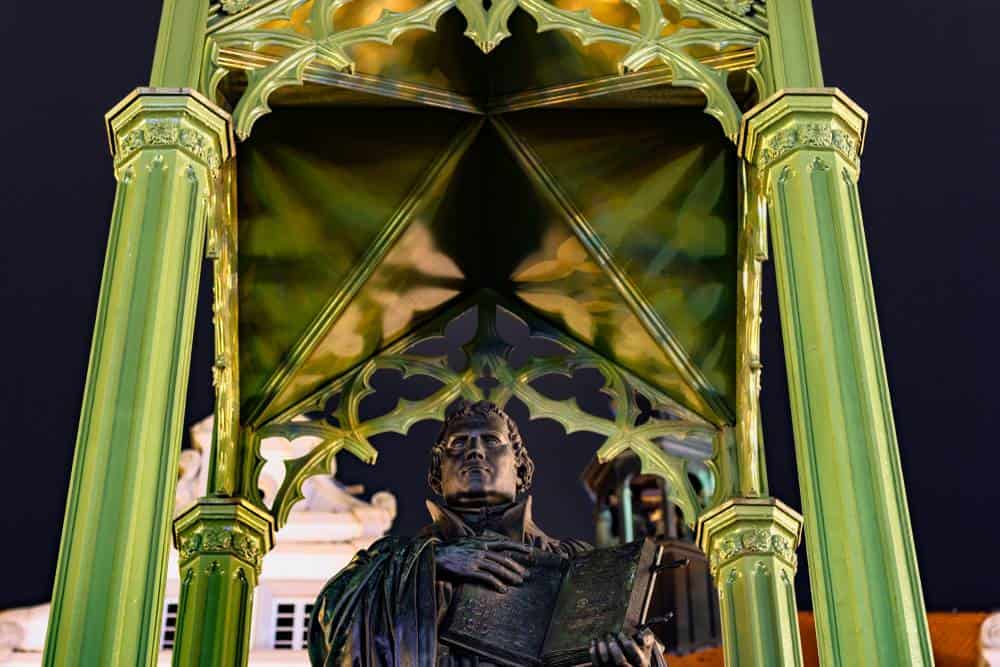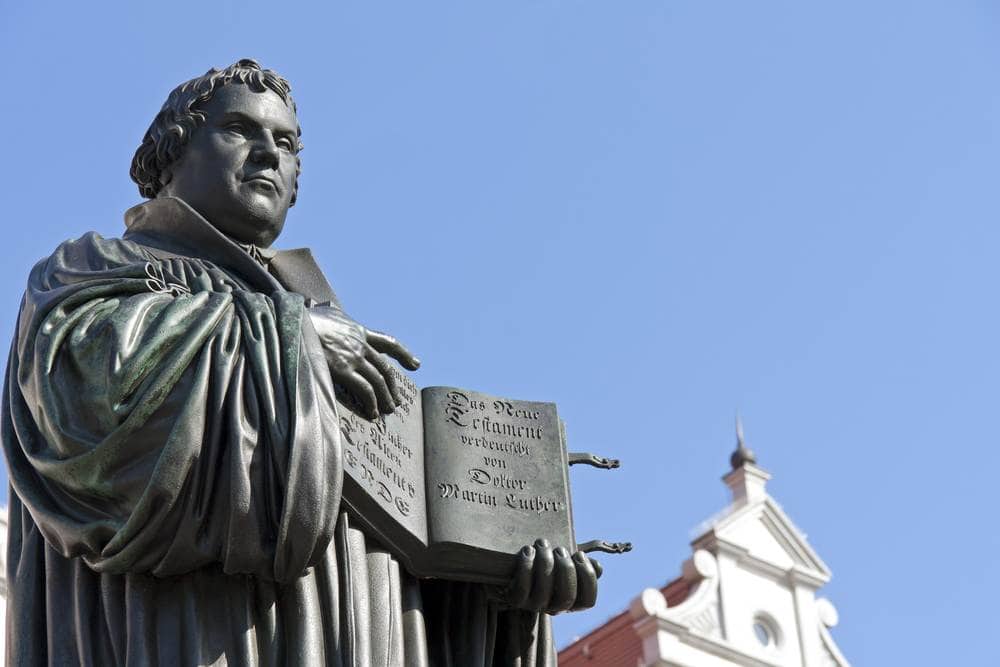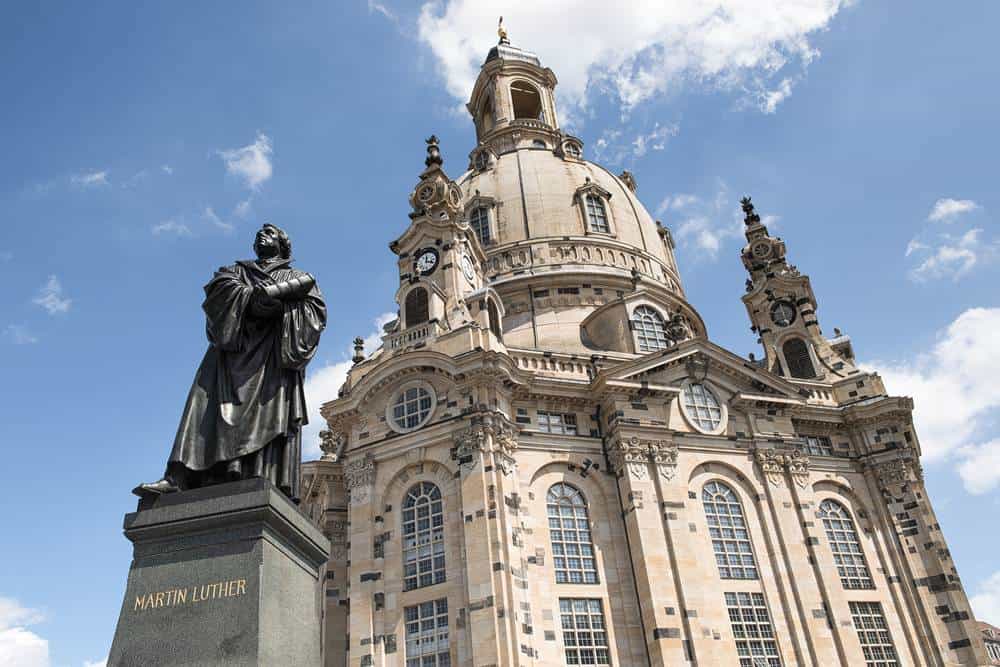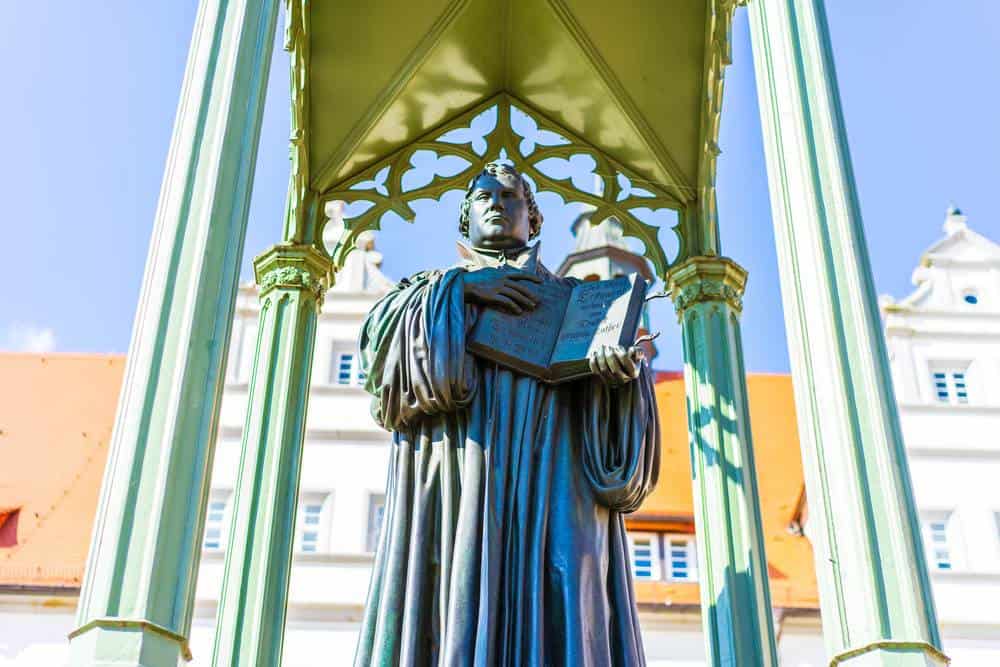Martin Luther, a German theologian born in 1483, dramatically altered the course of history. His profound teachings and relentless pursuit of religious truth sparked what we now know as the Protestant Reformation, a monumental shift in religious belief and practice that reshaped not only Christianity but also the political and social structures of the time.
In the following sections, we will delve deeper into the life and impact of Martin Luther, exploring the world before his influence, the consequences of his 95 Theses, his significant contributions to theology, and his lasting effects on culture, society, and the modern world.
How Did Martin Luther Impact the World?

Martin Luther is most famously known for his 95 Theses, a list of criticisms and propositions regarding the Catholic Church. Nailed to the door of All Saints’ Church in Wittenberg in 1517, the 95 Theses were a direct challenge to the dominant religious institution of the time.
This act, seen by many as the catalyst for the Protestant Reformation, began a religious revolution that would forever change the face of Christianity and the world.
Join us on this journey through history as we uncover the transformational impact of Martin Luther’s revolutionary ideas.
1. The World before Martin Luther
In the era preceding Martin Luther’s transformative influence, the religious, political, and social landscape of Europe was distinctly different from what it would become.
At this time, all Christians living in Western Europe were part of the Roman Catholic Church, under the leadership of the Pope who was based in Rome. This monolithic church had profound power and influence over every aspect of society.
Power of the Church
The Roman Catholic Church was not only the dominant religious institution but also an extremely rich and powerful political entity. Its reach extended to every corner of European society, influencing politics, culture, and even economic affairs.
Latin, the language of the Church, was the medium of instruction in services, making them inaccessible to the common people who didn’t understand this scholarly tongue. The Church’s wealth and political clout allowed it to command respect and obedience from the populace, fostering a largely unchallenged hegemony.
Sense of Dissatisfaction
Despite its dominance, the Church was not without its challenges. A variety of societal pressures were beginning to mount against it. Economic inequalities, corruption within the Church, the rise of nationalism, and a growing sense of dissatisfaction with the ecclesiastical hierarchy were some of the issues that signaled a brewing storm.
These factors set the stage for the seismic shift that was to come with Martin Luther and his 95 These.
Movements Against Church
The seeds of dissent were already present in the early 16th century. Movements such as Anabaptism started questioning the prevailing norms and doctrines of the Church.
These movements, though small, played a significant role in challenging the status quo and paved the way for the broader religious reforms that were to follow.
The pacifist Anabaptists, for example, adopted an anti-militarist program known as the Schleitheim Articles which prohibited oath-taking, bearing of arms, and holding of civic offices. However, these movements faced severe persecution, and many of their leaders were executed.
In this historical context, the stage was set for Martin Luther and the sweeping changes he would bring about with his audacious questioning of the Church’s practices and teachings. His ideas would not only revolutionize the religious landscape but also upset the social and political equilibrium, heralding a new era in European history.
2. The 95 Theses and Their Impact
One of the most pivotal moments in religious history occurred on October 31, 1517, when Martin Luther, a respected clergyman, nailed a piece of paper to the door of the Castle Church in Wittenberg, Germany.
This paper held within it ninety-five revolutionary ideas that would be known as the 95 Theses, and it sparked a profound transformation in the world.
The 95 Theses: A Call for Change
The 95 Theses represented a direct challenge to the authority of the Catholic Church. Luther’s primary contention was against the practice of selling indulgences to finance the construction of St. Peter’s Basilica.
He believed this practice was wrong and gave people a false sense of security about their salvation. In essence, the Church was encouraging its members to purchase these indulgences – paper documents that they believed would absolve them of their sins and grant them access to heaven.
Luther argued in his Theses that the Pope had no power over Purgatory and that papal indulgences did not remove guilt. These ideas were transformative because they contradicted the Church’s teaching and challenged its authority. As such, they caused significant upheaval within the religious community and beyond.
The Immediate Impact: Challenge and Controversy
Luther’s 95 Theses quickly became a catalyst for reformation. Soon after he posted them, they were translated from Latin into German, making them accessible to the public.
Thanks to the technology of the printing press, Luther’s ideas spread rapidly throughout Europe, sparking intense debate and controversy. It was a direct confrontation with the Church’s power and influence, forcing it to defend its practices and doctrines.
The Long-Term Consequences: A New Era of Religious Understanding
The impact of the 95 Theses was far-reaching and long-lasting. By challenging the Church’s authority, Luther empowered ordinary people to question religious dogma, interpret the Bible for themselves, and seek a personal relationship with God. This shift in religious understanding had profound implications for the Church and society.
The Protestant Reformation, which the 95 Theses catalyzed, transformed not only the religious landscape but also the political and social realms. It led to increased literacy, as more people learned to read the Bible in their native languages.
It also encouraged democratic governance by promoting the idea that every believer had direct access to God, negating the need for intercession by the clergy or the Pope.
The consequences of Luther’s bold action continue to resonate in our modern world, shaping the way we understand faith, authority, and individual freedom.
3. Luther’s Contribution to Theology: Justification by Faith
Martin Luther, the influential 16th-century monk and theologian, introduced a profound shift in Christian theology with his concept of “justification by faith.” This principle, central to Luther’s teachings, proposed that it is faith alone that makes a person righteous in the eyes of God.
It was a radical departure from the prevailing belief systems of the time and played a significant role in the birth of Protestantism as a major force within Christianity.
Luther’s emphasis on faith was encapsulated in his 95 Theses, where he argued against practices such as indulgences, which were perceived as attempts to buy one’s way into heaven. Instead, Luther posited that it was faith in Christ, and not human actions, that justified sinners before God.
He states, “[T]he moment you begin to have faith, you learn that all things in you are altogether blameworthy, sinful and damnable.”
The Impact of Justification by Faith

The concept of justification by faith profoundly altered the way people understood their relationship with God. Rather than striving to earn God’s favor through rituals or good deeds, believers were taught to trust in the grace of Christ for their salvation.
Luther’s theology demystified the relationship between God and humanity, emphasizing personal faith over ritualistic observance. Luther’s teachings also highlighted the distinction between the law and the gospel.
The law, according to Luther, illuminates our inability to fulfill God’s requirements through our own efforts and leads us to despair of our ability.
Conversely, the gospel offers promises of grace, righteousness, peace, liberty, and all things through faith in Christ. “If you believe, you shall have all things. If you do not believe, you shall lack all things,” Luther explained.
Through his belief in justification by faith, Luther asserted that good works were not necessary for salvation. This view liberated many from the fear of divine retribution for their sins if they could not perform enough good deeds, shifting the focus towards developing a personal, faith-based relationship with God.
Justification by Faith: A Lasting Legacy
Luther’s concept of justification by faith continues to be a central tenet of Protestant theology. It remains a defining difference between Protestantism and other branches of Christianity, such as Roman Catholicism and Eastern Orthodoxy, which maintain a more works-oriented approach to salvation.
The doctrine has had a lasting impact, shaping religious thought and practices for centuries.
In essence, Martin Luther’s teaching of justification by faith disrupted the status quo and altered the course of Christian history. It marked a significant theological shift, changing the way people understood their relationship with God and challenging prevailing religious norms.
In doing so, Luther played a vital role in shaping the diverse landscape of modern Christianity.
4. Luther’s Influence on Language and Culture
Martin Luther’s impact extended far beyond the confines of theology. His influence touched language, literacy, and culture, shaping the contours of German society and those far beyond.
Luther’s Impact on Language and Literacy
Luther’s translation of the Bible into German was a transformative moment in the history of language. Until this point, the Bible had primarily been available in Latin, accessible only to the educated elite. Luther’s translation democratized the sacred text, making it accessible to the common folk and ultimately bolstering literacy rates amongst the German-speaking populace.
This monumental work did not merely translate the text; it shaped the very fabric of the German language. Standing at the confluence of various regional dialects, Luther’s translation helped move towards a common German tongue. Distinctive expressions that came into common use in Germany can trace their origins back to Luther’s Bible [1].
As such, it’s fair to say that today’s German speakers, regardless of their confessions or religions, owe a linguistic debt to Luther’s translation.
Luther’s Influence on Culture: Music, Literature, and Education
Luther’s cultural impact is as profound as his linguistic one.
- He held a deep appreciation for music, which he considered “the art of the prophets” and “a gift and grace of God.” His hymns, such as “A Mighty Fortress Is Our God,” remain staples in Protestant worship services.
- His encouragement of congregational singing democratized participation in church services, fostering a sense of community and shared devotion.
In literature, Luther’s influence is equally significant.
- His writings, filled with vivid language and compelling narratives, served as an inspiration for subsequent generations of authors.
- His emphasis on the individual’s direct relationship with God opened up new avenues for personal introspection and expression in literature.
Finally, let’s not overlook Luther’s impact on education.
- His belief in the importance of every Christian being able to read the Bible led to a renewed emphasis on literacy and education.
- He advocated for universal education for both boys and girls – a revolutionary idea at that time.
- This laid the groundwork for the modern concept of compulsory education and shaped the way education systems are structured today.
In all, Luther’s influence permeated every aspect of society. Through his translation of the Bible, he democratized language and literacy. His contributions to music, literature, and education have left an indelible mark on German culture and continue to resonate across the globe.
5. The Long-Term Effects of Luther’s Reformation

Martin Luther’s influence reached far beyond the scope of religious doctrine. It extended into realms of politics, economics, social norms, and cultural practices, dramatically transforming them in ways that have shaped the world we live in today.
Political and Economic Transformations
Firstly, we must look at the political and economic transformations sparked by Luther’s actions. Prior to Luther’s reformation, the Catholic Church held immense power and influence, not only on a spiritual level but also in governance and economic matters.
When Luther challenged the authority of the Church, he inadvertently encouraged a shift in power dynamics. His teachings promoted individual liberty and equality, which provided the ideological foundation for democracy.
As people began to question the Church’s authority, they also started to assert their own rights, leading to the growth of democratic principles and practices.
Lasting Effects on Modern Society
These shifts in religious, political, and economic structures were not fleeting moments in history; they have had enduring impacts on modern society.
- The Reformation led to the emergence of new heretical movements and the decline of the papacy, causing a reevaluation of people’s views on the Church and life values.
- It also allowed people to understand religion in their own way and read the Bible without Church interference, fostering a spirit of individualism and personal interpretation that remains a cornerstone of modern Western thought.
The Ripple Effects of Reformation
Luther’s reformation did not merely cause a ripple in the Christian world; it created waves that spread across various aspects of society.
- His actions led to the decentralization of religious authority, which inadvertently fostered the growth of secular power. This shift opened doors for political revolution and economic development.
- The Protestant work ethic, derived from Luther’s emphasis on hard work and responsibility, is often cited as one of the catalysts for capitalist economic systems.
- Furthermore, the questioning of Church authority that Luther instigated also paved the way for the Enlightenment, a period characterized by significant advancements in science, philosophy, and human rights.
In essence, the long-term effects of Luther’s Reformation are evident in the fabric of our modern world. From our political systems and economic structures to our cultural norms and individual beliefs, Luther’s influence remains ingrained in our societal DNA.
His audacious challenge against the established order of his time sparked changes that have echoed through centuries, shaping the contours of contemporary life.
Conclusion – Luther’s Lasting Legacy
As we reach the end of our exploration of Martin Luther’s transformative impact, it is crucial to recap the profound changes that this formidable figure instigated. Luther was not merely a religious reformer; he was a catalyst for seismic shifts in the theological, cultural, political, and social landscapes.
His legacy is intertwined with the very fabric of modern society, as his actions and ideas continue to resonate centuries later.
Luther’s 95 Theses, a daring critique of the Catholic Church’s practices, sparked a wave of religious upheaval known as the Reformation. Through this act, Luther challenged the Church’s authority and laid the foundation for a new branch of Christianity: Protestantism.
However, the impact of the Theses extended far beyond religious boundaries. They were transformational, leading to a radical rethinking of societal norms and structures, paving the way for modern capitalism and polarizing politics.
Martin Luther was indeed a figure who “touched off something much larger than himself.” His actions sparked a series of reforms that persist to this day, shaping our world in ways that extend beyond what he could have imagined.
As we look back on his life and impact, we are reminded of the power of conviction, the importance of questioning authority, and the potential within each of us to instigate change.




